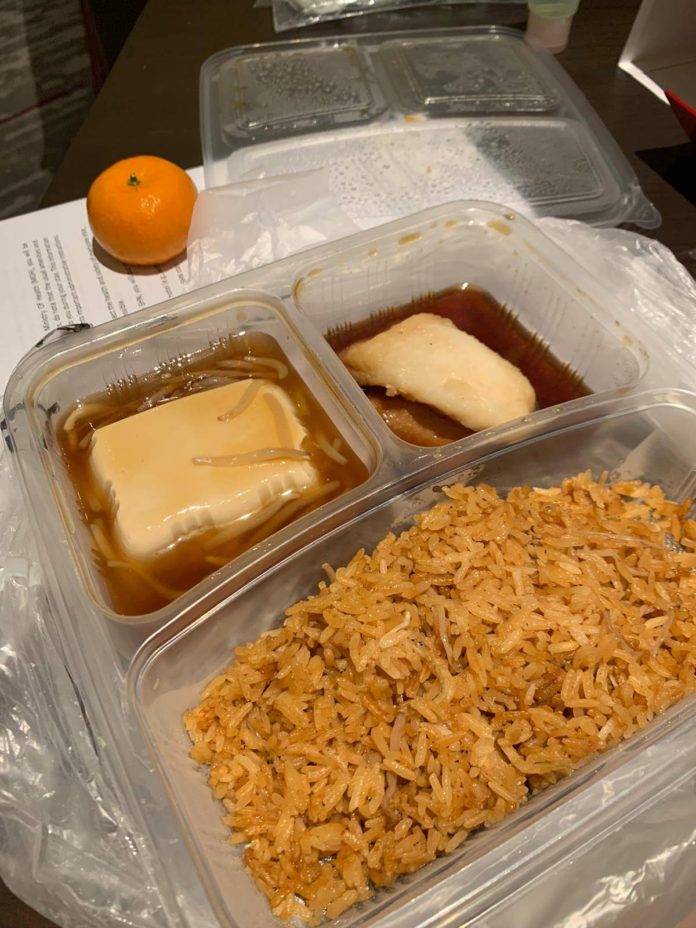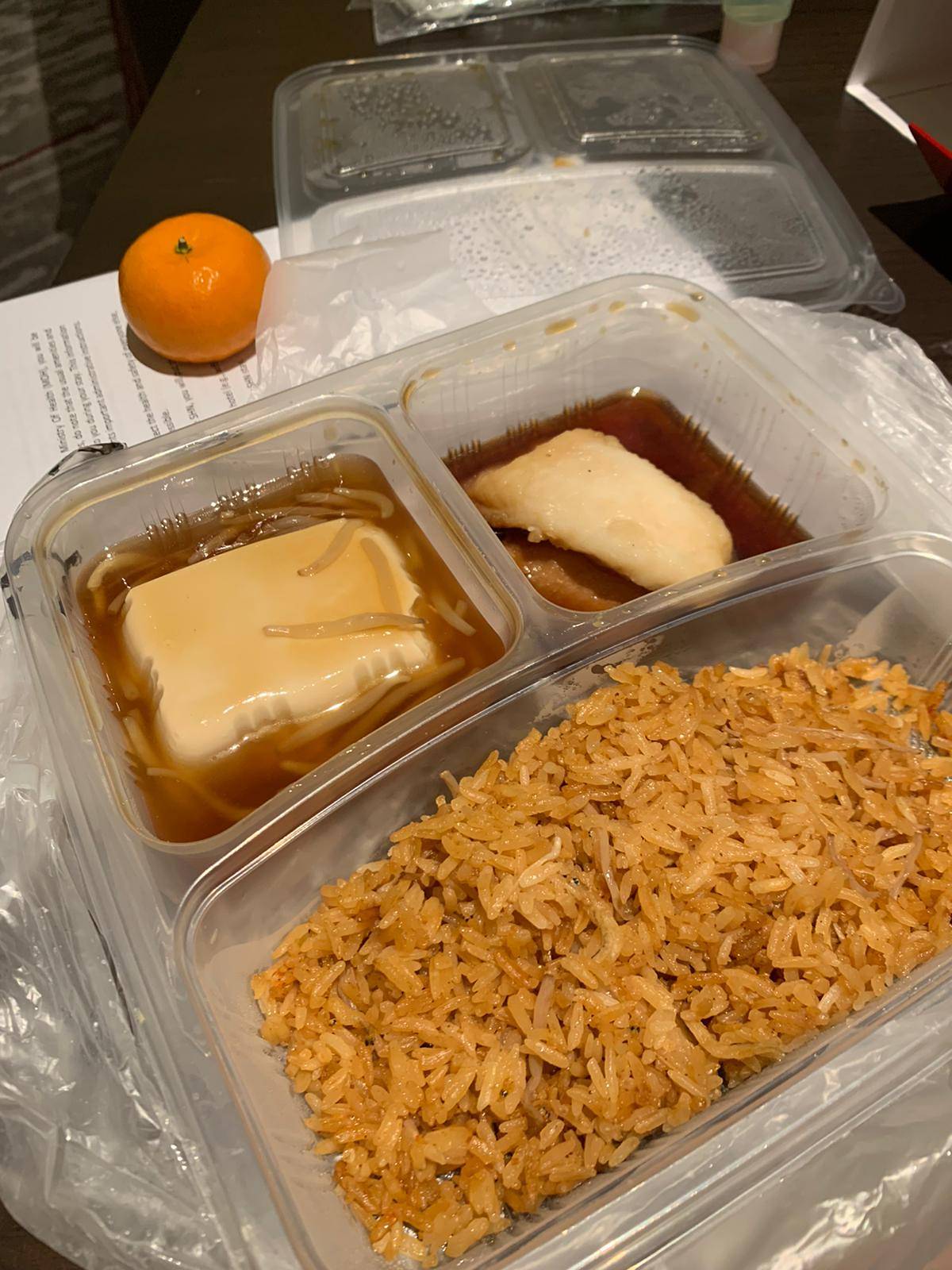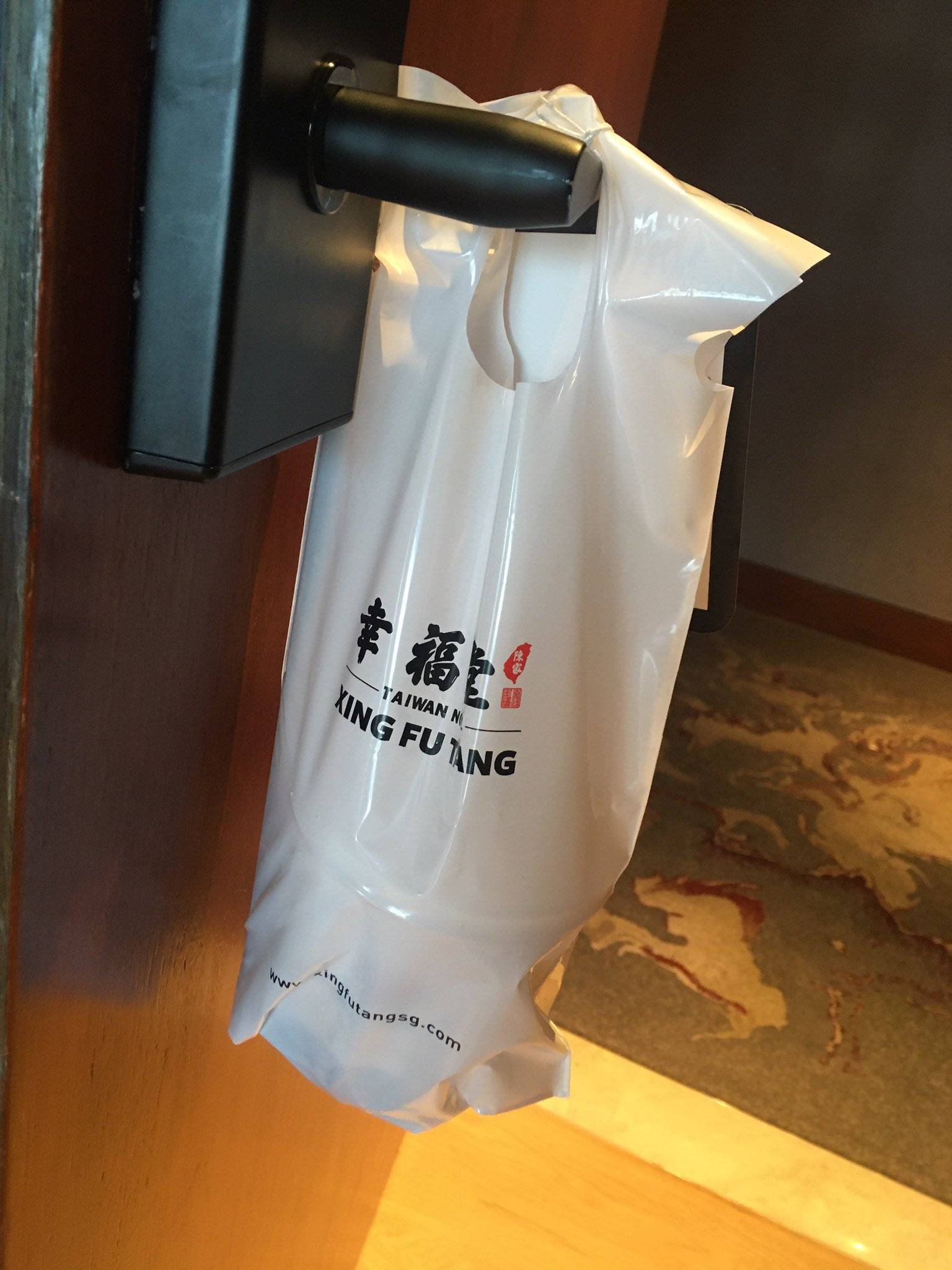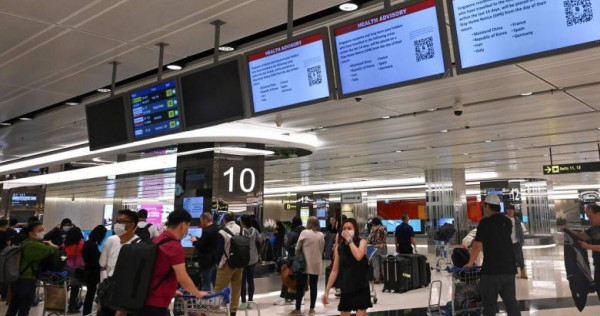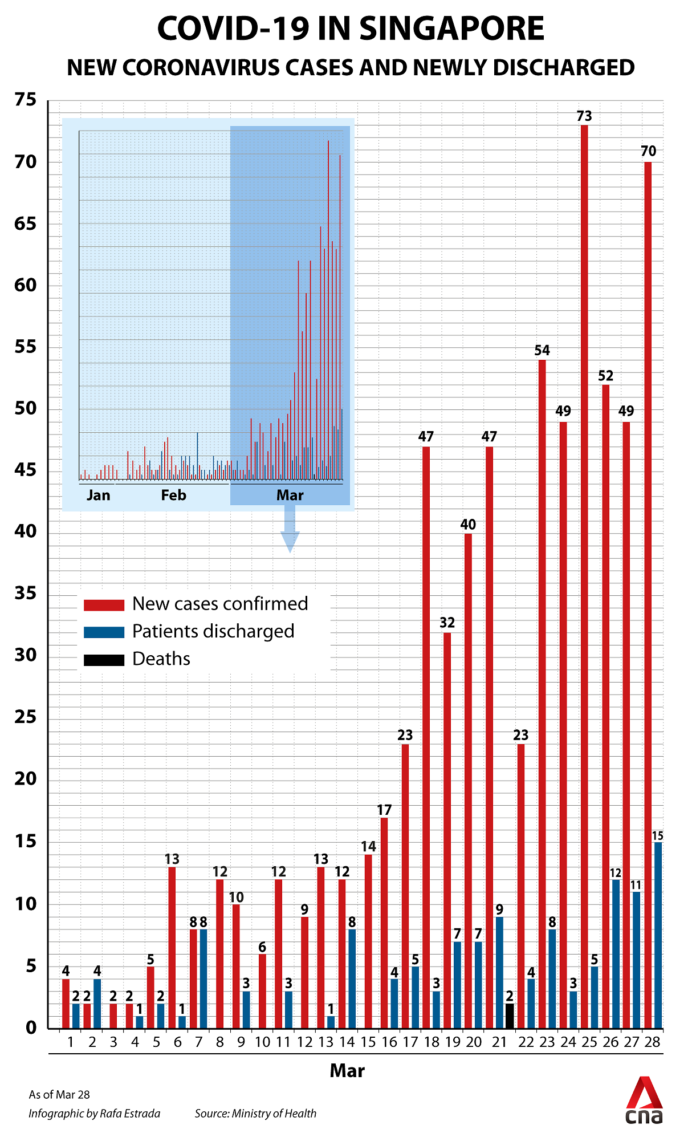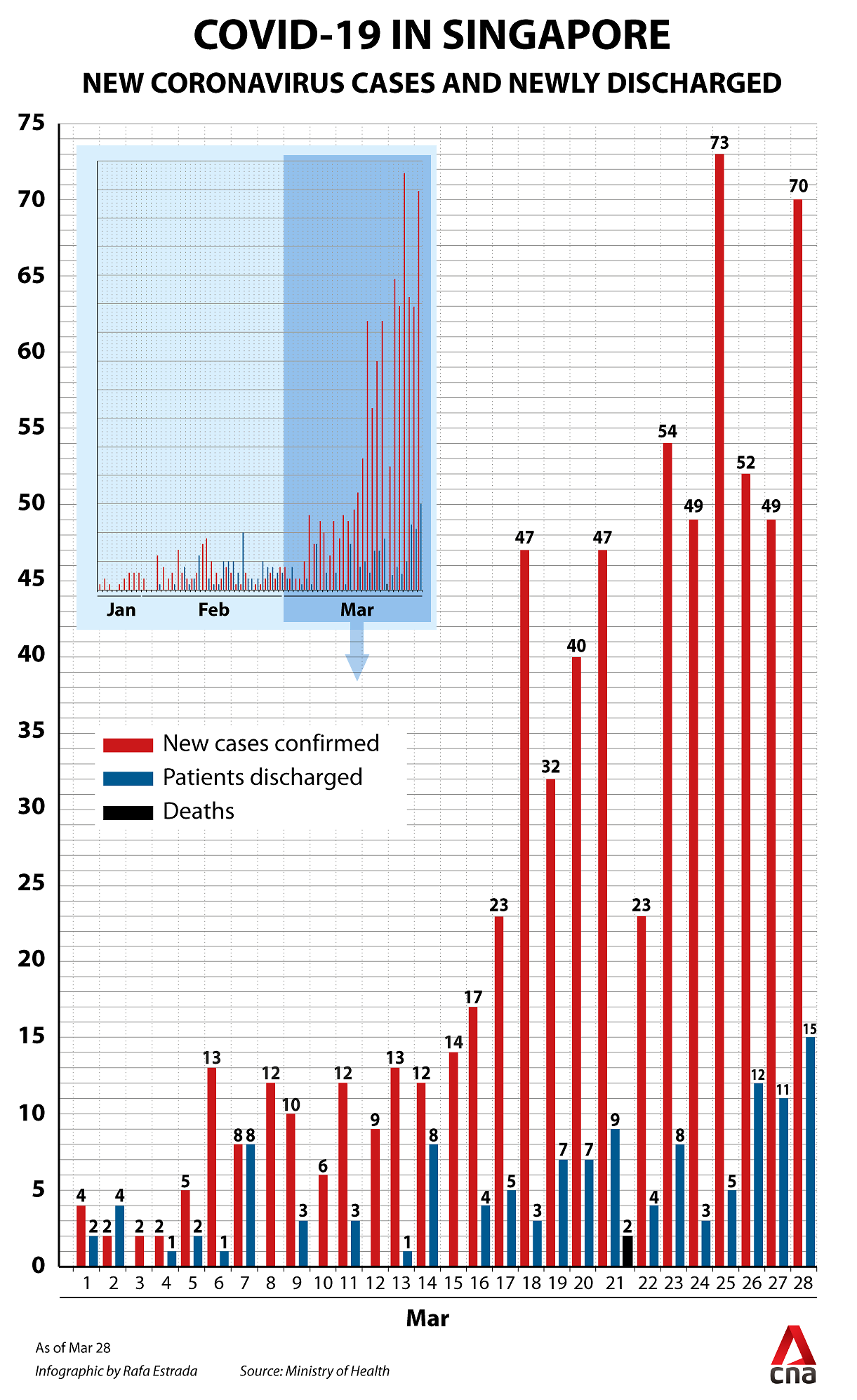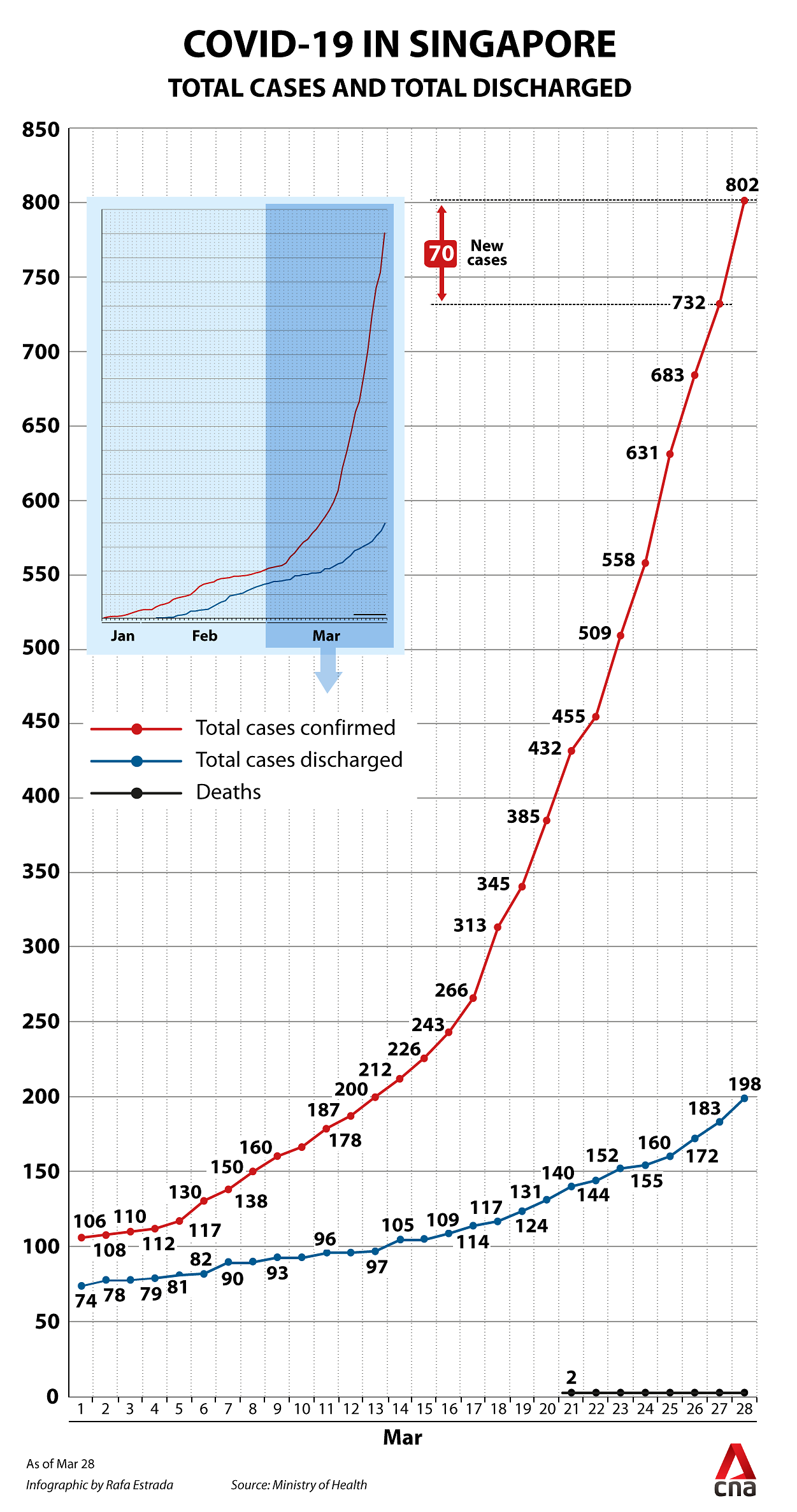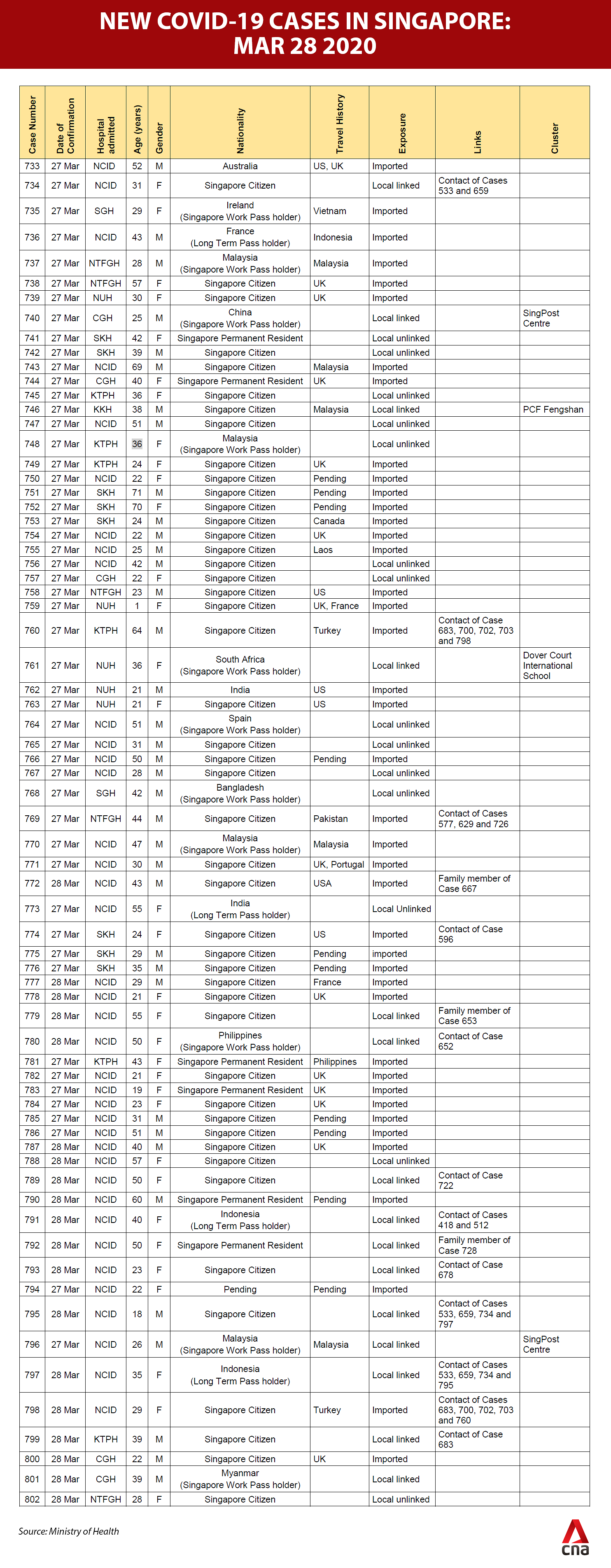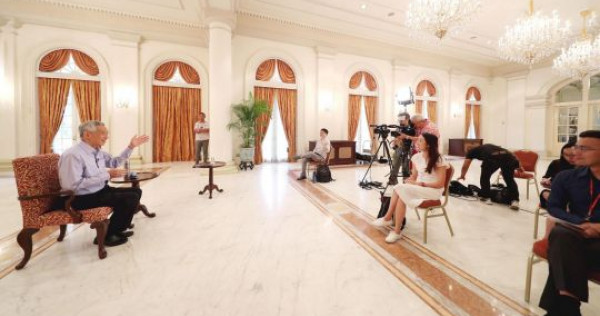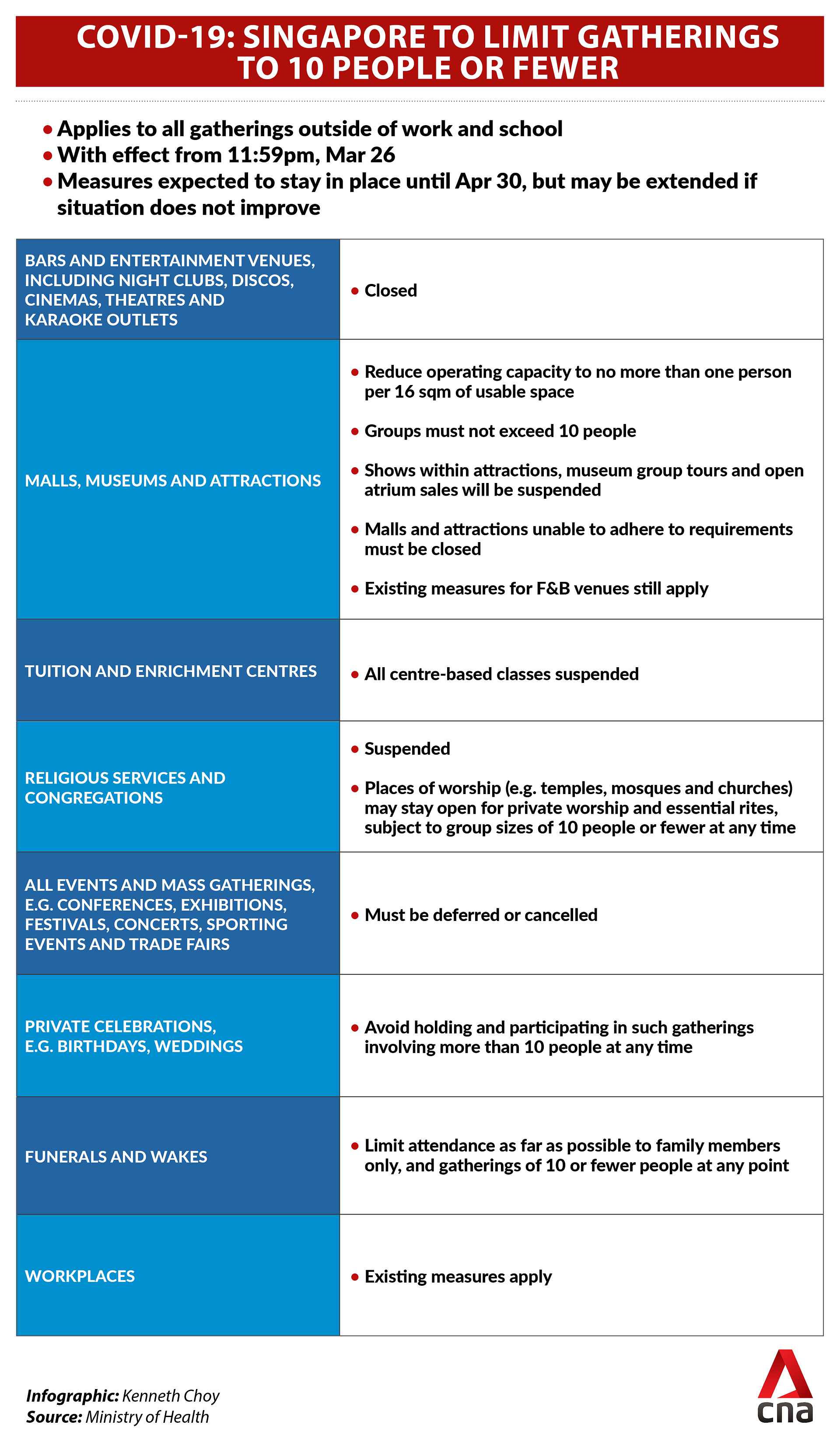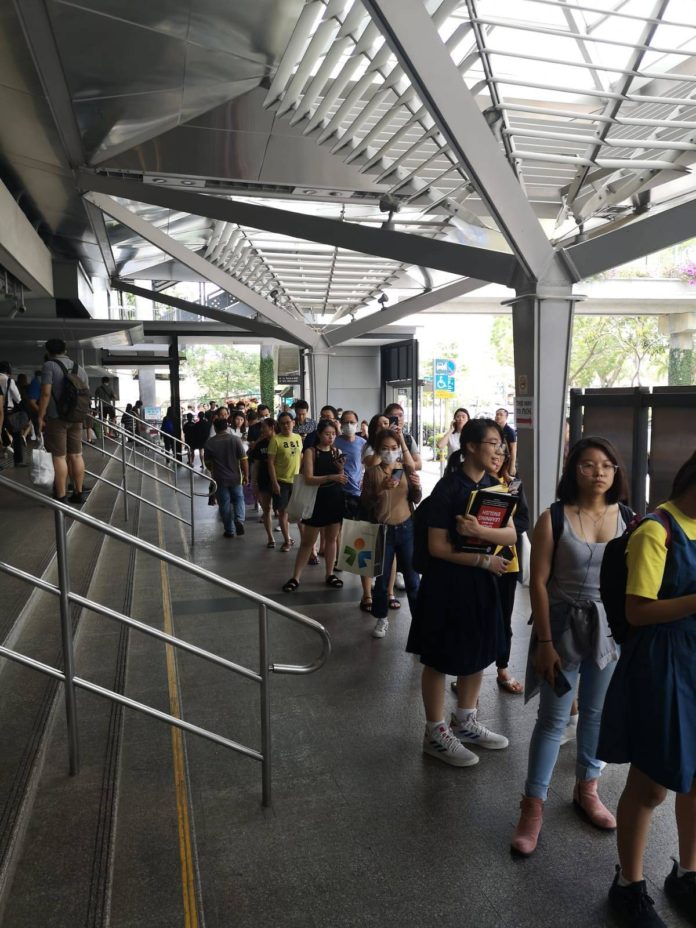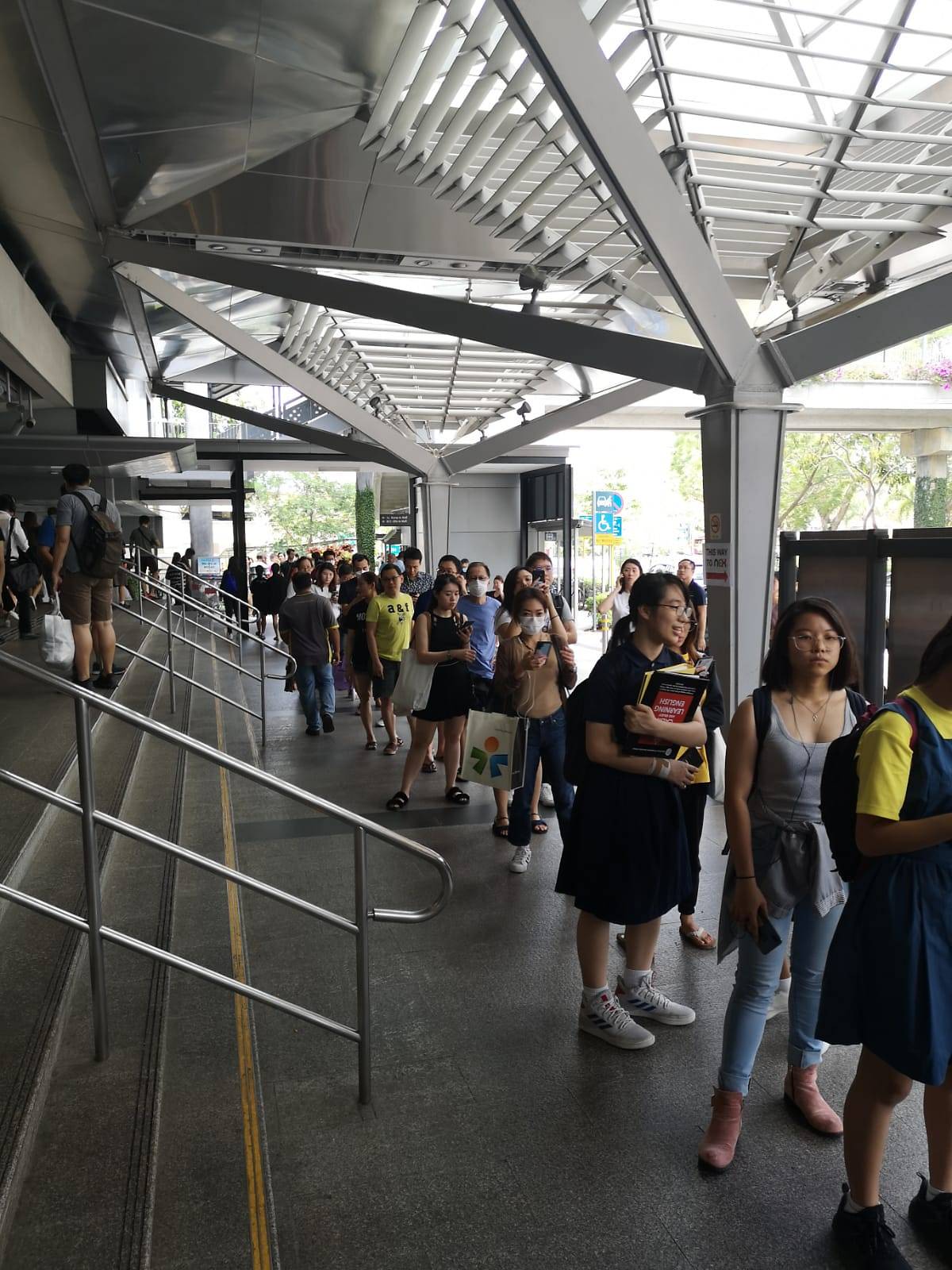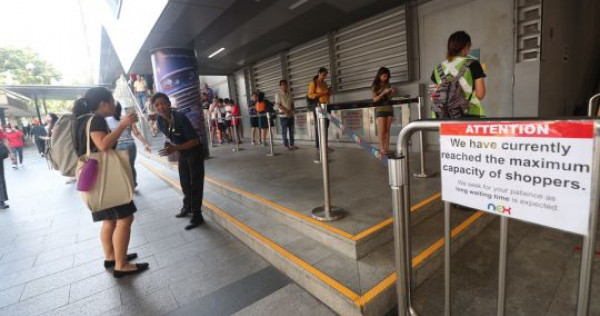SINGAPORE: If you were to tour the lush green grounds of the Istana, you would not find a better guide than Mr Wong Tuan Wah who has amassed an intimate knowledge of the trees and shrubbery in the 106-acre estate.
He’s gained that store of knowledge over the 24 years he has been working the grounds. In that time Mr Wong, now the Senior Curator of the Istana, has served four presidents and two prime ministers.
And in these grounds, many of these trees have a story.
The oldest tree on the grounds is a Tembusu tree, he pointed out. It was planted in 1867, the same year the Istana was built, making it more than 150 years old. Pointing to the 40 towering trees that line the main Istana avenue, he said they were planted at the request of former Prime Minister Lee Kuan Yewin 1972, who was an avid lover of rain trees.
The oldest tree in the Istana is a 150-year-old Tembusu tree. (Photo: Marcus Mark Ramos)
A rain tree was also planted by then Prime Minister Goh Chok Tong in 1998, to commemorate the launch of the Singapore Kindness Movement, Mr Wong said.
SERVING FOUR PRESIDENTS
Staff at the Istana like to mark their time by the Presidents they have served, he said.
“When I came in 1996, it was the middle of the term of President Ong Teng Cheong. After President Ong, it was President (SR) Nathan who was here for two terms – twelve years. Followed by President Tony Tan, six years, and now President Halimah Yacob,” he said.
The changes marked more than just the passage of time for Mr Wong. The focus was different too, he said.
Mr Wong is intimately familiar with the trees in the Istana and has stories to tell about most of them. (Photo: Marcus Mark Ramos)
When Mr Ong was president, he initiated the upgrading of the Istana front lawn in 1996.
“What you see today is the upgraded lawn itself – very beautiful, very tranquil, and a lot of flowering plants,” Mr Wong said.
Mr S. R. Nathan, who served as president from 1999 to 2011, encouraged NParks to document the Istana’s flora and fauna into books. “I think he enjoys reading books, so he commissioned NParks to take the lead in producing these books,” said Mr Wong.
During that time, NParks set up a team to work on three different books – the Gardens of the Istana, the Trees of the Istana and the Birds seen at the Istana – which were all produced during Mr Nathan’s time.
When Mr Tony Tan served his presidential term from 2011 to 2017, he directed Mr Wong to set up the spice garden and the orchid garden to showcase the spices and Singapore’s national flower, the Vanda Miss Joaquim, to visitors who come when the Istana grounds are open to the public.
Mr Wong introduces the Istana’s orchid garden. (Photo: Marcus Mark Ramos)
Under Mdm Halimah Yacob, the Istana has started to open up to the community and beneficiaries such as people with special needs, to let the public “enjoy the tranquil and peaceful gardens”, he said.
Mr Wong added that Mdm Halimah is also a book lover, She commissioned 10 books for the Istana’s 150th anniversary celebrations last year.
SENIOR CURATOR OF THE ISTANA
The work day starts early for Mr Wong – at about 7.30am – who oversees a team of 13 responsible for the day-to-day maintenance of the Istana.
“As I walk in from the main gate towards my office, I will inspect the grounds … I see things out of place and needs to be rectified, then I would inform the workers,” he said.
These could include clearing fallen branches and debris, and replanting shrubs which have been damaged the day before.
Mr Wong’s team will also take charge of the decorations and potted plants for functions and events held at the Istana.
Apart from attending to routine duties, Mr Wong is actively involved in several Istana-related projects. One such project involves the conservation of the Oriental Pied Hornbills by providing the birds with suitable artificial nest boxes.
The spice garden is one of the many projects that Mr Wong has completed for the various presidents, who each made their own mark on the Istana grounds. (Photo: Marcus Mark Ramos)
In 2019, he was also “very busy” with projects related to the 150th anniversary of the Istana, including editing 10 different books on the Istana, and helping the President host events and activities within the gardens.
“What we do here is a service, and the service must be up to certain expectations. We have to ensure that we meet this service all the time, and the service is also reflected in the quality of work that we do,” said Mr Wong.
This includes responding to urgent requests which usually needs to be settled on the day itself, such as checks on the the water quality of the ponds, tree conditions and even pungent smells emanating from the lawn.
Other than overseeing the maintenance of the Istana, Mr Wong is also in charge of supervising the development of Fort Canning Park.
After spending the first half of his day at the Istana, Mr Wong will walk over to Fort Canning Park, where he will similarly inspect the grounds
They completed phase one of the Fort Canning Park Masterplan, just in time for the opening of the Singapore Bicentennial event on June 1st last year, said Mr Wong. The Fort Canning Park Masterplan involves the recreation of historical gardens at Fort Canning Park to emphasise its history and heritage.
“Now looking back, it’s a major achievement … because we were able to complete nine gardens within two years,” said Mr Wong.
OVERSEAS RECRUITMENT
Working with the outdoors suits Mr Wong.
“I’m interested in the outdoors, and I like the outdoor work,” he said.
This is why Malaysian-born Wong chose to pursue a Forestry degree in New Zealand after completing his Pre-U education in Malaysia.
In his third year, the Public Service Commission came to New Zealand to recruit students to the civil service. Based on his third year results, he was offered an interview.
He remembers the interview being three hours long, and it was all done in the university, but he came out of it with a job offer from the Parks and Recreation Board (now NParks) even before graduating.
“I was very happy, my parents were very happy,” he said.
He thought that he would try the position out, since he had received the offer, and it ended up being his “first and last job”.
Mr Wong’s work involves the day-to-day maintenance of the Istana grounds and carrying out projects initiated by the Istana. (Photo: Marcus Mark Ramos)
MEANINGFUL WORK
The culture of working at the Istana has changed over the years, said Mr Wong.
“When I first came here … people don’t want to work at the Istana. Nobody volunteered. You’re just selected … and you’re sent to a place where you’re not sure if you make the grade.”
But now, after more than 20 years, he feels that the Istana is a “good place to work”.
“There’s meaning and purpose here, that you provide a good service to the Istana.”
To watch the Istana evolve over time is also a reward in itself.
“You feel very happy when you see the growth and development of the gardens through different times,” he said.
“In 1998, then Prime Minister Goh Chok Tong planted the yellow rain tree. It was still small (then), but now 20 years, you see the tree grow and it’s such a majestic tree.
“You feel proud and you feel happy that you have contributed in a small way to promoting tree planting, seeing the tree grow.”
